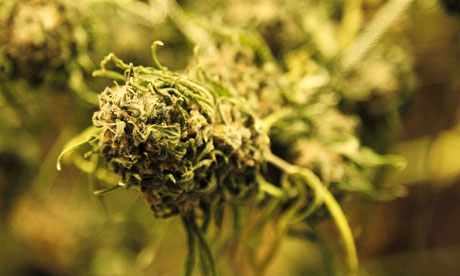By Michael Roberts
At 10 a.m. today, just prior to a moms against Amendment 64 event sponsored by opponents of the Regulate Marijuana Like Alcohol act, supporters of the measure will be holding a press event of their own — this one highlighting the release of a new report showing that marijuana possession arrests in Colorado fall disproportionately on the young and people of color. We interview a co-author of the study below.
The study, on view below in its entirety, puts its grabbiest stat in its title: “210,000 Marijuana Possession Arrests in Colorado.” Here’s a graphic showing the year-by-year breakdown, which cover the span between 1986 and 2010:

And here are what study authors Harry Levine, Jon Gettman and Loren Siegel characterize as their “key findings:”
• Marijuana possession arrests in Colorado increased from 4,000 in 1986 to over 10,000 in 2010, totaling 210,000 arrests over the past 25 years.
• In the five years from 1986 to 1990, police in Colorado made 19,400 possession arrests. Twenty years later, from 2006 to 2010, police made 55,900 marijuana possession arrests, almost three times as many.
• From 2001 through 2010, Colorado police made 108,000 arrests for possessing marijuana, overwhelmingly of young people. More than two-thirds (69 percent) of those arrested were 25 or younger, 79 percent were 29 or younger, and 86 percent of those arrested were age 34 and younger.
• Whites, mainly young whites, made up 63 percent of those arrested in the last ten years. Blacks and Latinos, also mostly young, were 36 percent of the arrestees.
• Although young African Americans and Latinos use marijuana at lower rates than young whites, in the last ten years police in Colorado arrested Latinos at 1.5 times the rate of whites and arrested blacks at 3.1 times the rate of whites.
• In the last decade, blacks were 3.8 percent of Colorado’s residents, but 10.5 percent of the marijuana arrests. Latinos were 19 percent of the state’s residents, but a quarter (25 percent) of Colorado’s marijuana possession arrests.
• Marijuana possession arrests create criminal records easily found on the Internet by employers, landlords, schools, credit agencies, licensing boards and banks, erecting barriers to education, employment and housing. Marijuana possession arrests do not reduce serious crimes, and they take police from other crime-fighting work.
• Colorado is often said to be a marijuana decriminalization state, but since the 1970s, Colorado law has made possession of small amounts of marijuana a crime, a Class 2 Petty Offense. Failure to appear in court as ordered by a summons is another crime, punishable by six months in jail and a $500 fine.
• In county courts, marijuana possession carries a $100 fine. In municipal courts, however, judges can impose fines of $300 or more, change $50 per month in probation fees, require regular drug testing, and send people to jail for several days if they have used marijuana.
Levine, a professor of sociology at the City University of New York’s Queens College and co-director of the nonprofit Marijuana Arrest Research Project, speaks frankly about the report’s release date.
“Of course this is timed to the amendment,” he says from New York. “It helps us to get attention for what we regard as a national scandal. This is what we do: We try to call attention to what we think is a nationwide scandal about marijuana possession arrests and the collateral consequences.”
Complete article:
http://blogs.westword.com/latestword/2012/10/marijuana_arrests_colorado_moral_catastrophe.php

-thumb-375x572.jpg)



